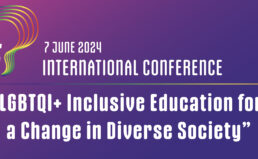
EUOBSERVER / BRUSSELS – Lithuania’s Supreme Administrative Court ruled on Friday that Baltic Pride, a gay rights rally planned for Saturday in the capital, Vilnius, would be able to go ahead after all, overturning a ban by a lower court.
The move comes after the European Commission made it known its concerns about the earlier decision’s threat to fundamental freedoms.
The commission made it clear it was concerned about the lower court’s ruling.
Jonathan Faull, director-general of the European Commission’s justice, freedom and security department had written to the country’s ambassador to the EU, noting: “The commission is concerned about the recent developments.”
“Respecting fundamental rights, including freedom of expression and assembly, is an obligation imposed on member states by their own constitutional order and international obligations,” he wrote.
EU justice spokesman Matthew Newman told EUobserver that the EU executive had been following the situation very closely.
“Even though the commission has no legal authority to intervene in how member states organise laws on public meetings, member states must respect fundamental rights, including freedom of expression and assembly as required by their own constitutional order and international obligations,” he said.
The Charter of Fundamental Rights only covers acts performed by the EU institutions and member states in their application of EU law. Beyond these two realms, member states remain free to act as they wish.
Her spokesman said of the justice and fundamental rights commissioner, Viviane Reding: “Gay rights are a real issue for her.”
Underscoring her support for the march, Ms Reding spoke via video address on Friday to an international conference entitled “”Human Rights combating fear and prejudice” that was organised as part of the Baltic Pride events.
“As the European commissioner responsible for Fundamental Rights, I am fully committed to combating homophobia and discrimination against people on the basis of their sexual orientation.”
“The principle of equal treatment is a fundamental value for the EU … Yet, as confirmed by the data collected by the Fundamental Rights Agency, by member states institutions and by civil society, homosexual people in Europe are still victims of exclusion, hate speech, hate crime and discrimination.
“This is completely unacceptable,” she continued, outlining the work the commission has done to stop discrimination against gays and lesbians in the workplace and housing.



